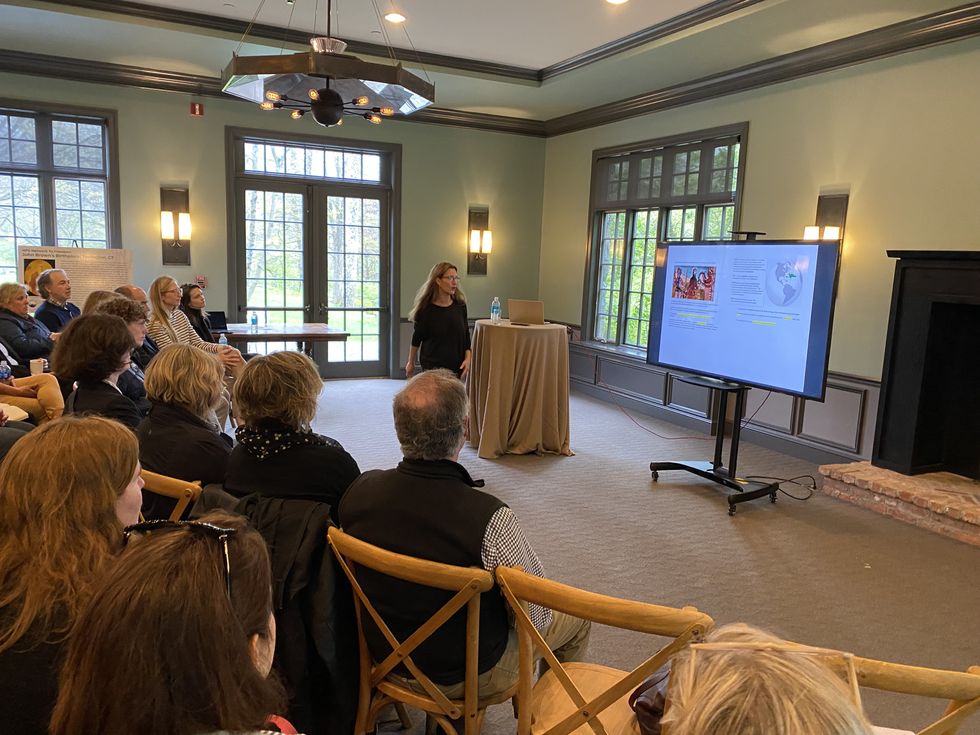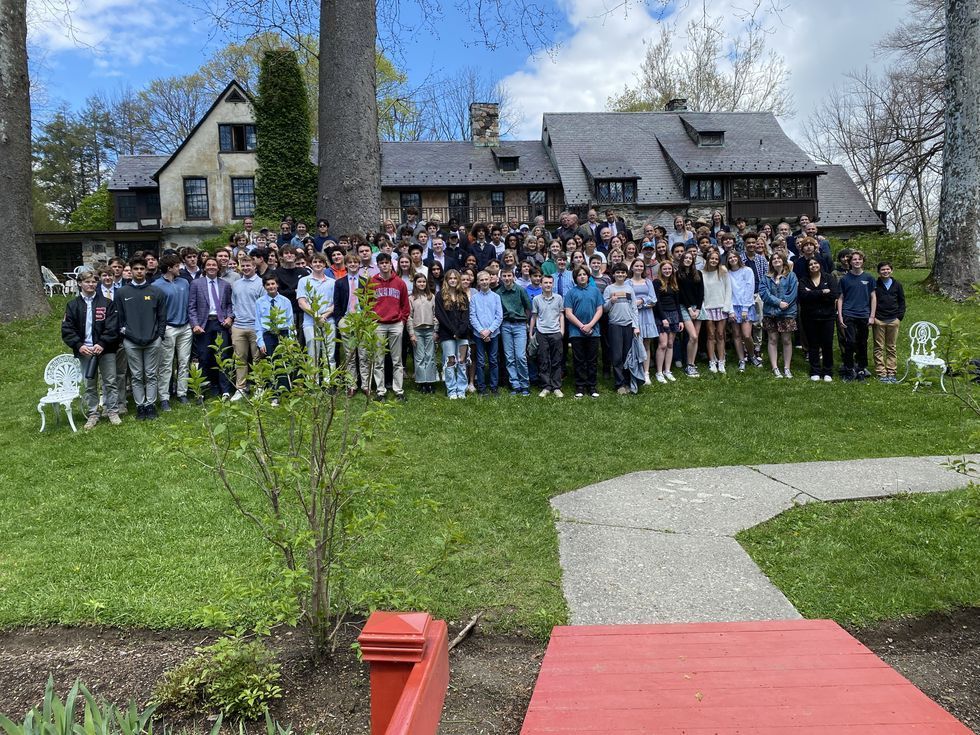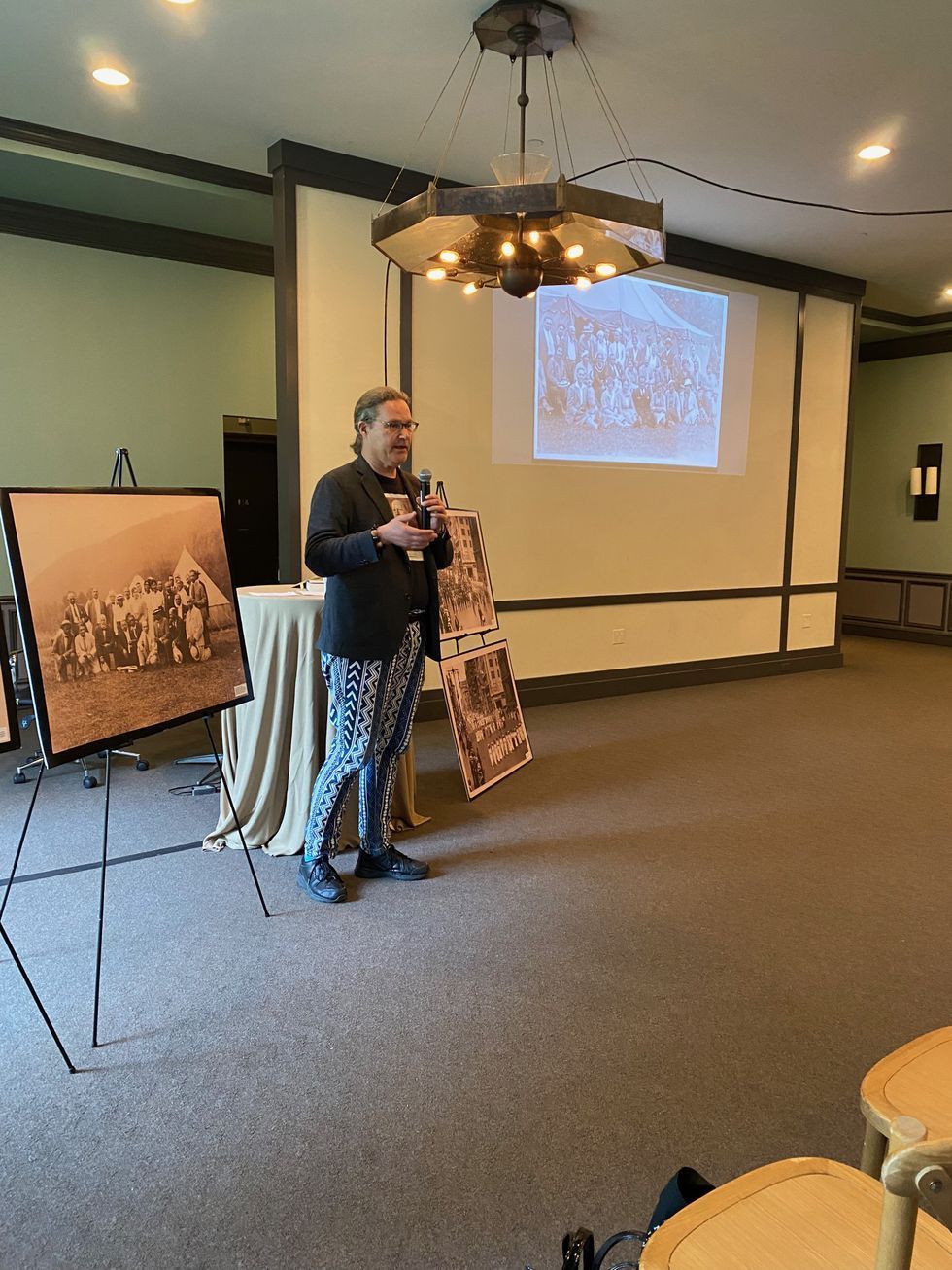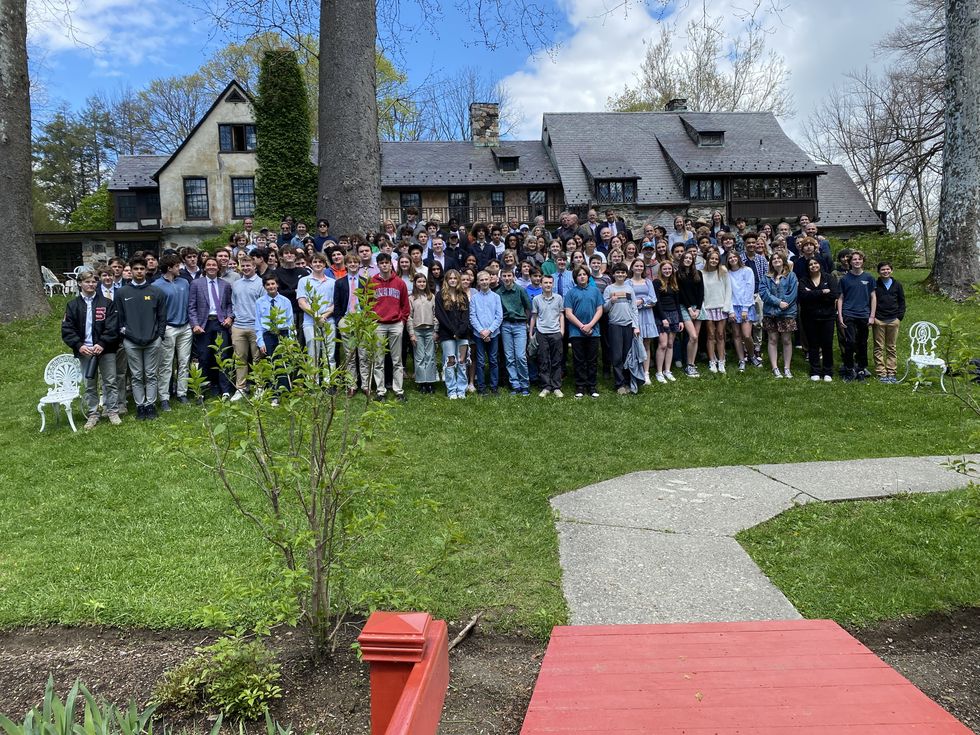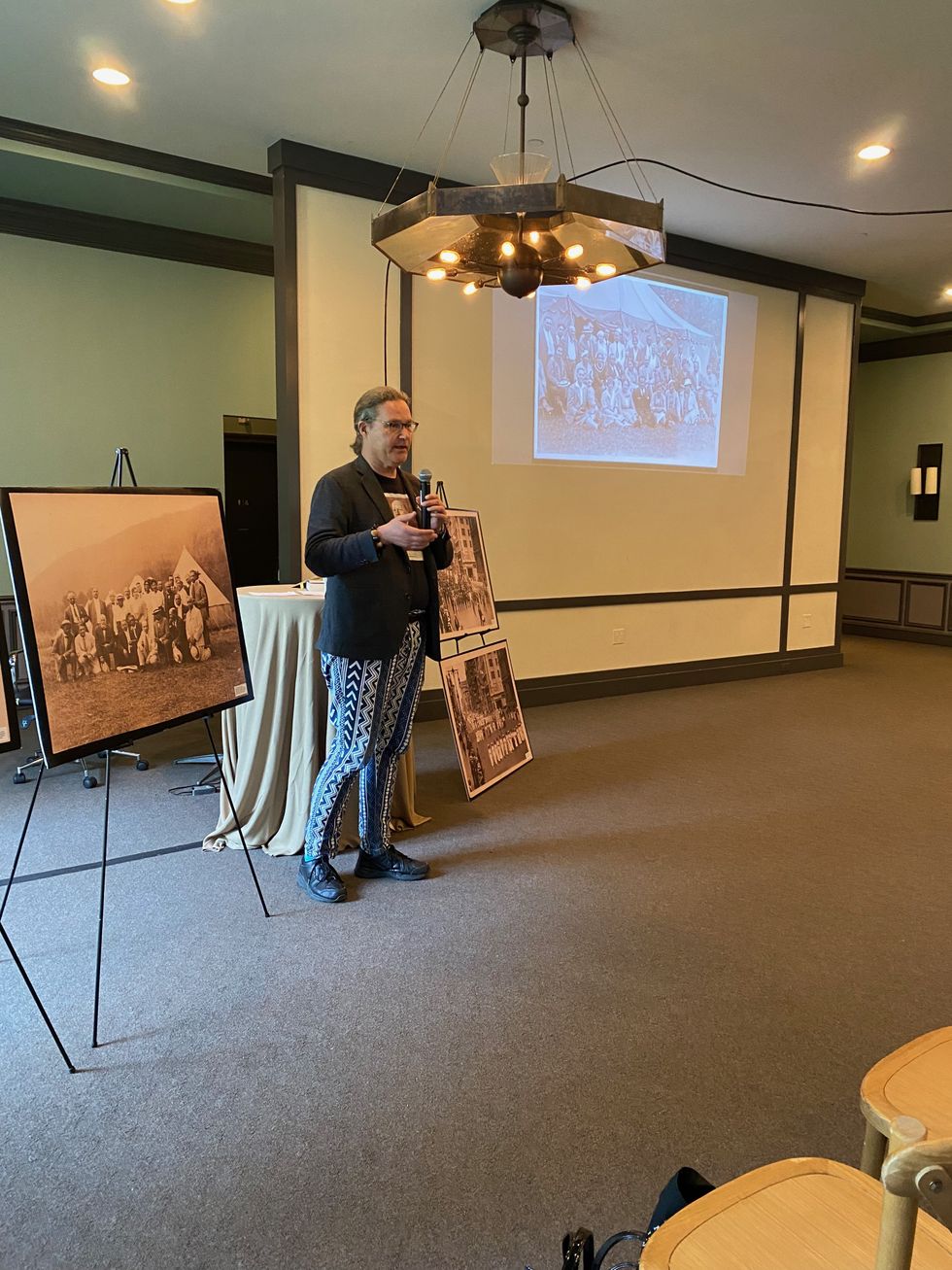AMENIA — Seeking to build on the legacy of commitment to inter-racial progress that underpins the significant history of the Troutbeck conference center in Amenia, the 2023 Troutbeck Symposium was held over three days, celebrating the year-long work of 14 local schools.
Students in area independent and public schools had set out to explore the many aspects of the history of racial, religious and ethnic divides, the forgotten narrative of the marginalized. This was the second symposium following last year’s event.
Over three days from Sunday, April 30 to Tuesday, May 2, the students’ work was a focal point of the symposium that also presented lectures by renowned educators who explored the well-known, little-known and forgotten narratives of the American experience for Black citizens, Native Americans and other minority populations.
Troutbeck’s early owners, Amy and Joel Spingarn, had engaged with and supported the early history of the NAACP, when their estate had hosted the Amenia Conferences of 1916 and 1933, establishing the enduring legacy of social reform.
“I’m trying to learn this history along with my students,” said Rhonan Mokriski, history teacher at Salisbury School at the opening session on Sunday, April 30, adding that he and his students are engaging with themes of accessibility and sustainability, amplifying the stories of all people who contributed to the building of our country.
“Why do we still have these inequalities,” asked Christina Proenza-Coles of the University of Virginia, speaking at the Sunday opening. “We are trying to retell the narrative of American history to illustrate the best of our ideals.”
Helping to establish context and a definition of place, Proenza-Coles provided an outline of the centuries of the history of the Western Hemisphere and its substantial population of indigenous peoples, nations and tribes. She also covered the influx of the Spaniards and their influence on the Caribbean culture, the migration of Africans to South America and the history of slavery in North America.
Many of the early western cowboys were Black or Hispanic, she noted.
How people over history strive for and achieve their freedom was a focus of the narrative, Proenza-Coles said.
“White people are trapped in a history they don’t comprehend,” she said, suggesting that people reach toward the freedom achieved by knowing more, paying attention to the detail afforded by historical reality.
A feature of the Sunday session was “Cotton,” a documentary created by Sharon Center School students to tell the story of local artist Katro Storm’s guest teaching at their school about cotton as a plant, cotton as a crop, and the relationship between cotton and slavery in the history of the southern states. He also guided the young students in interpreting that history in individual art projects.
“This work is not academic; it’s the work of recovery,” Mokriski told the audience. “Students sought the ignored stories seeking a more open story, a new vision of history,” he added.
The Civil Rights Act of the 1964 was not the end result, Mokriski said, explaining that there was then an obsession with the idea of racial integration, the idea that proximity to white people was the overarching goal. It was not, he said. The goal was equal treatment and the rights afforded by freedom, a struggle that continues to the present day.
“We will be looking to you,” Mokriski told the students. “Take this project experience and reimagine your space and you will see that it shapes the trajectory of our nation.”
Student-produced documentaries were part of the “Coloring our Past” project initiated through The Salisbury School and now extended to all 14 of the participating schools. Topics explored local stories linked to Black and Indigenous narratives where students interacted with local and area historical societies to uncover fragmentary evidence and do the detective work to piece those puzzles together, shaping the stories of courage and commitment.
A highlight of the symposium was the participation of Prof. Hasan Kwame Jeffries of The Ohio State University who offered his thoughts on each of the schools’ presentations.
Jeffries said, “We need to teach the true history of the past. It has to be taught across the curriculum. People need to study the place of activists and their positive effect over time.”
One documentary produced by Housatonic Valley Regional High School students had explored the local connection to the 1958 state action to close schools in Little Rock, Arkansas, rather than to integrate them, leading two Black students to be invited into a Lakeville home and welcomed into HVRHS to continue their high school years and graduate.
On Monday, May 1, students from The Salisbury School presented the story of “someone who was meant to be forgotten.” The story of Rachel Cesar, an Algonquian sachem needed to be told, but it was made difficult by “the elusiveness of the lost detail of the historical narrative.” A sachem was a high-ranking representative, a king, elected by the tribe rather than by inheritance or appointment.
In a departure from the documentary genre, the young students from Cornwall Consolidated School had chosen to create a “Crankie Theater,” telling their story of Cornwall’s Foreign Mission School using a scroll powered by a hand crank. It proved to be a crowd favorite.
Both guest educators offered high praise for the Troutbeck Symposium. Proenza-Coles proclaimed it to be the best symposium she had ever attended in her entire career of attending innumerable symposia, and Prof. Jeffries said that he intended to brief his brother, House Minority Leader Rep. Hakeem Jeffries (D-N.Y.), on the whole Troutbeck Symposium experience.
“It’s an example of what can happen when a community gets behind and supports its teachers,” Jeffries said. “This is a model of possibility,” he added.
Region One Superintendent Lisa Carter spoke on Tuesday, May 2, praising the project.
“This symposium is really important, where all area students can come together as a community,” Carter said.
A selection of projects from the symposium will be on display in Salisbury Association’s Academy Building from May 6 to June 3. Representing the Salisbury Association at the symposium was Executive Assistant Lou Bucceri.
Students and faculty delegations representing 14 area public and independent schools assembled on Monday, May 1, at the 2023 Troutbeck Symposium in Amenia. Photo by Leila Hawken
A featured speaker at the final day of the 2023 Troutbeck Symposium was Michael Morand, director of community engagement, at Yale’s Beinecke Rare Book and Manuscript Library in New Haven, Conn. Photo by Leila Hawken
Students and faculty delegations representing 14 area public and independent schools assembled on Monday, May 1, at the 2023 Troutbeck Symposium in Amenia. Photo by Leila Hawken
